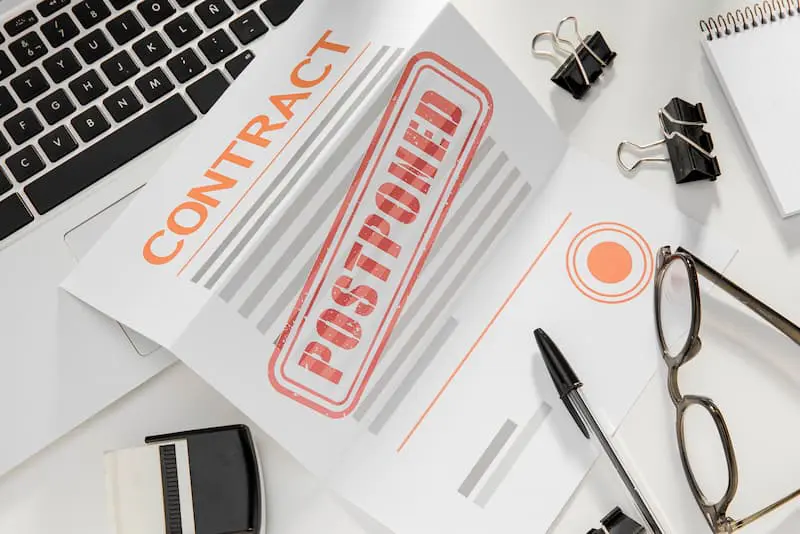Being a landlord in Baltimore can be a tricky business, especially when tenants fail to uphold their rental agreements. If your renters aren’t paying or are violating the terms of the lease, eviction may become necessary. This process can seem daunting, but it’s manageable with the proper steps and resources. Here’s a guide to help you navigate the process and explore your options after a tenant eviction.
When Should I Consider Eviction?
Evicting tenants is never an easy decision. However, if your tenants repeatedly fail to pay rent or violate other lease terms, it’s time to have a serious conversation about the next steps. Eviction should be a last resort but is often necessary to protect your investment.
Understanding the Eviction Process in Baltimore
Eviction is a multi-step legal process that requires careful attention to detail. Acting swiftly and correctly can help avoid delays when it is clear you won’t be getting paid for your property.
Step 1: Notice of Intent
You begin the process by sending your tenants a formal Notice of Intent1. This document outlines the amount owed, the months in arrears, and a warning that legal action will follow if they don’t pay. The notice can be filled out online and mailed to the property.
Important Note: This is not an eviction notice but a preliminary step.
Step 2: Filing Court Forms
If the tenant fails to pay after the Notice of Intent, you must file a Failure to Pay Rent (FTPR) form at your local district court. To file, you’ll need:
To file the form, you’ll need:
- Your property’s registration number
- Lead certification number
- Details about you and your tenant
Once filed, you’ll pay a filing fee and receive a court date. The sheriff’s office will notify the tenant of the court date.
Professional Tip: File promptly—Baltimore courts are often backed up, and delays can extend the process.
Step 3: Trial Day
Bring all documents relating to your tenants and rental. It is always better to have a document ready that you don’t need than to need one you don’t have. On your court date, come prepared with your:
- Lease agreement
- Payment ledger
- Filing paperwork
- Lead certification
If the tenant doesn’t appear in court, you may receive a default judgment, meaning you win because the other party wasn’t there. Otherwise, both parties present their cases, and the judge makes a ruling.
Step 4: Warrant of Restitution
If your court rules in your favor, file a Warrant of Restitution2 four days after the judgment. This officially begins the eviction process and requires an additional filing fee.
Step 5: Scheduling the Eviction
Ten days after you file the Warrant of Restitution, contact the sheriff’s office to schedule the eviction. Be persistent—processing can take time. Provide your property’s address and case number during these calls.
Complete and send the official Notice of Eviction form to your tenants before the eviction date. You can obtain the form from the Baltimore City District Court. It must be mailed at least two weeks before the scheduled eviction.
On eviction day, law enforcement will handle the removal process. Always cooperate to avoid complications or delays.
What Happens After Evicting a Tenant?
Once the property is back in your possession, secure and assess it.
Securing the Property
Change all the locks and check that all the windows are secured. This prevents unauthorized access by former tenants.
Assessing Damage
Hire a contractor or inspector to evaluate the property for damage caused during the tenancy. This assessment will help you decide on the next steps, whether to rent the property again or sell it.
Selling After Eviction
Managing rental properties can be overwhelming, especially after a challenging eviction. If you’re ready to move on, selling the property may be your best option.
If your recently evicted tenants left the place in a less-than-ideal state, a traditional sale can take more money and time than you’re willing or able to spare.
If you don’t want the next few months of your life to be managing contractors, real estate agents, and showings, all while covering your investment property’s mortgage, consider a faster and hassle-free option. Sell your property to cash home buyers in Baltimore. They will purchase homes in any condition, eliminating the need for costly repairs and renovations. Transactions typically close within weeks, quickly resolving your property headaches.
Final Thoughts
Evictions are never easy, but you can protect your investment and move forward with proper planning and support. If you’re considering selling a home as is after an eviction, explore the benefits of working with experienced cash buyers like Express Homebuyers. They can help you transition smoothly and avoid the stress of lengthy traditional sales.
Ready to sell your property? Contact Express Homebuyers today for a no-obligation cash offer.
1https://www.courts.state.md.us/sites/default/files/court-forms/dccv115.pdf
2https://www.courts.state.md.us/sites/default/files/court-forms/dccv081.pdf


